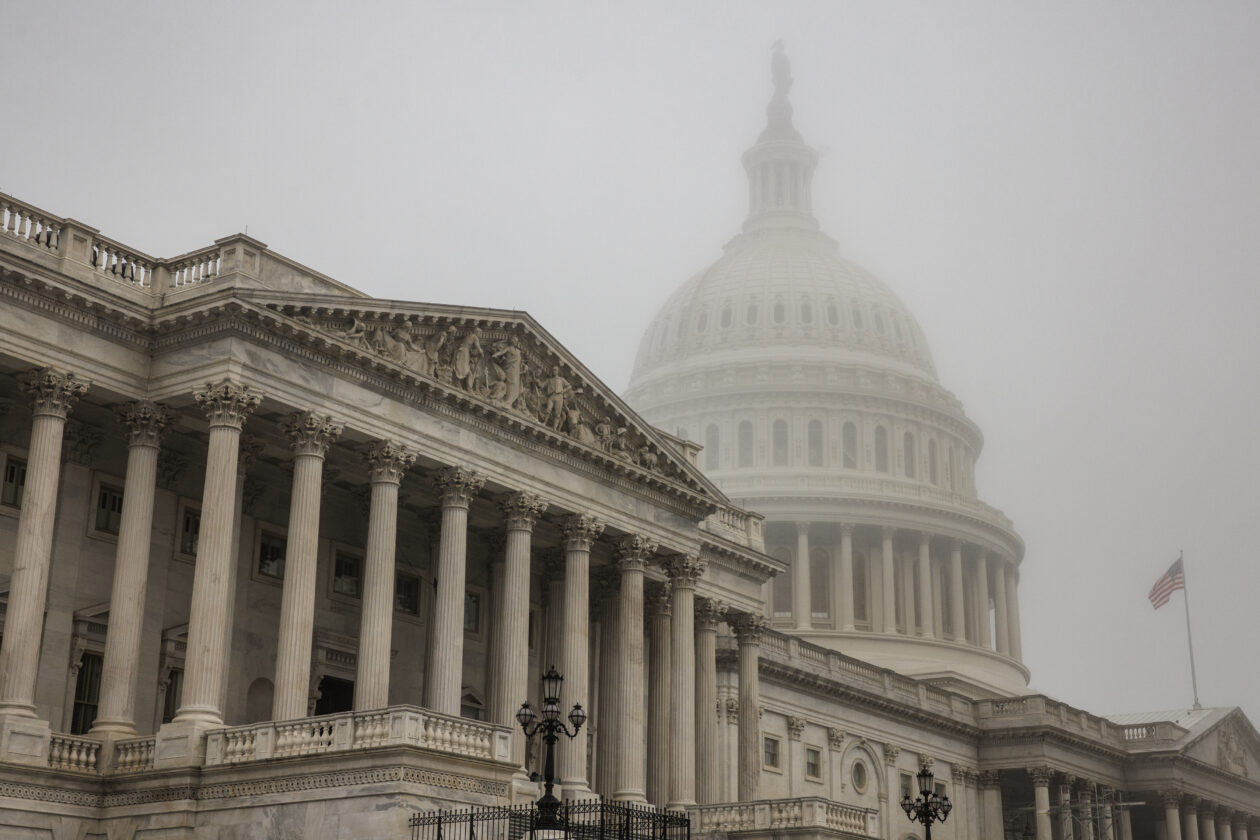U.S. voters go to the polls on Tuesday for midterm elections that can shift the balance of power in the world’s biggest economy, with all 435 seats up for grabs in the House of Representatives and 34 out of 100 in the Senate.
While the Democratic Party controls both, polls indicate the Republican party may retake the House of Representatives, which could lead to the familiar post-midterm gridlock for a sitting president, in this case Joe Biden.
With inflation at 40-year highs and the U.S. Federal Reserve cranking up interest rates, much focus is on the economy and jobs — two of the standard mainstays of voter concerns. But opinion polls show that cryptocurrencies are also appearing on the electorate radar.
A total of 13% of respondents held cryptocurrencies in an October poll of 1,200 voters by the Crypto Centre for Innovation, which also found 16% of respondents held stocks. The holders of crypto said the assets have unrealized potential.
With regulators from the European Union and the International Monetary Fund to the U.S. Securities and Exchange Commission calling for tougher rules on trading of cryptocurrencies, what happens in Washington could influence the industry globally for years to come.
Ben Emons, global macro strategist, said there is plenty of momentum for cryptocurrency regulation in Congress, referring to bills that have been submitted by Republicans and Democrats.
“I think most likely is that the bills that have been floating in the House in particular are still going to be actively discussed and potentially voted on no matter what the outcome is, because there is a really strong bipartisan movement in the House, in particular on getting regulation for crypto,” Emons told Forkast in an interview.
Bills
One of these bills is a bipartisan effort from the Senate Agriculture Committee, introduced in August by Democratic Committee Chairwoman Debbie Stabenow and the committee’s highest-ranking Republican John Boozman.
This bill seeks to end the warring over digital asset jurisdiction between two competing agencies – the Commodities and Futures Trading Commission (CFTC) and the Securities and Exchange Commission (SEC). The bill defines crypto as commodities, which puts them under the CFTC.
Another bill introduced in June by Democratic Senator Kirsten Gillibrand and Republican Senator Cynthia Lummis, which followed the multi-billion dollar collapse of the Terra/Luna stablecoin, also aims to broaden the CFTC’s purview of digital assets.
SEC Chairman Gary Gensler has pushed back, arguing that any proof-of-stake cryptocurrency – which would include Ether, the world’s second-largest – should be classed as a security.
Lawsuits filed by the SEC against crypto institutions, such as Ripple Labs Inc. and Celsius, have led to accusations the SEC of attempting to regulate through enforcement.
Such a practise is “not an efficient way to build a sustainable body of law governing digital assets,” former Senator and chief strategist of political affairs at the Crypto Council for Innovation, Cory Gardner, told Forkast.
Gardner added: “a number of federal agencies, including both SEC and CFTC, will need to act in partnership to provide the clarity and consistency that the industry needs to grow.”
According to Emons, Democrats tend to favor stronger enforcement while Republicans are deregulation oriented. But he added: “I don’t think there’s too much of a difference of opinion about the role of the SEC as it relates to the crypto or stock market.”
Of the four Senators who have their names attached to the crypto bills, only one, Arkansas’s Boozman, is up for re-election. In the Republican-dominated southern state, however, polling data aggregator site FiveThirtyEight gives the Senator who has held the seat since 2011 a 99% chance of winning re-election.
Conflict
Democratic House member for New Jersey’s 5th District, Josh Gottheimer introduced another bill, the Stablecoin Innovation and Protection Act of 2022. This aims to define stablecoins and create regulatory models for them apart from other, more volatile cryptocurrencies.
An advocate for cryptocurrency in the House, Gottheimer has clashed with other Democrats who take a more hardline stance on the technology, such as Senator Elizabeth Warren.
FiveThirtyEight projects Gotthiemer has a 92% likelihood of retaining his seat against Republican challenger Frank Pallotta.
Warren has long been one of the Democratic Party’s most outspoken critics of cryptocurrency, pushing the SEC to take a more hardline stance on regulating the industry throughout her tenure as Head of the Senate Banking Committee’s Subcommittee on Economic Policy.
A Senator from Massachusetts, Warren is not up for re-election until 2024.
Lobbying
The crypto industry has also tried to throw its weight behind several candidates this election cycle with mixed results.
Jonathon Jackson, who is running for the 1st District in Illinois, came under fire in the run-up to the election for allegedly improperly reporting large sums of campaign donations from a political action group with ties to the billionaire owner of the cryptocurrency exchange FTX, Sam Bankman-Fried.
Bankman-Fried’s “Protect Our Future” political action committee (PAC) has spent more than US$1 million in Illinois Democratic primary races, including US$500,065 on television ads to promote the connection between Jackson and his politically famous father, the Rev. Jesse Jackson.
While the PAC reports to promote “pandemic preparedness,” the Chicago Sun-Tribune alleges this is part of a plan to influence crypto policy. Jackson is projected to easily win his election against Republican Eric Carlson.
Another candidate with support from FTX-affiliated individuals was Michelle Bond, who runs the Association for Digital Asset Markets, and made cryptocurrency part of her primary campaign for New York’s 1st District.
Bond secured only 30% of the vote despite receiving more than $100,000 from a super political action committee headed by FTX Digital Markets co-chief executive officer and boyfriend Ryan Salame.
Polarized
While cryptocurrency is on the agenda in the midterms and has bi-partisan support, many other issues from gun-control and crime to the direction of the economy are far more divisive.
Nearly 80% of both Democrats and Republicans now believe that the other party poses a threat that has the potential to “destroy America as we know it,” if not stopped, according to an NBC News poll of 1,000 adults surveyed.
“Arguably, never has more been at stake in a modern midterm election than in this year’s,” Steven Okun of diplomacy consultants McLarty Associates, said in an email to Forkast.
Okun said Biden’s legislative agenda would come to a halt if one of both chambers flip to the Republicans.
The Republicans have a 53% chance of winning back both chambers of government, while the Democrats only have a 17% of holding onto both, according to FiveThirtyEight.
Breaking this down even further, FiveThirtyEight gives the Republicans an 82% chance of winning the house and a 54% chance of winning the Senate individually.
Okun said if Republicans won the Senate with the assistance of Donald Trump-backed candidates, that would increase the likelihood the former President would secure the Republican nomination for President in 2024.
“I think the midterms are a little bit overrated in terms of the overall impact and it’s really about 2024, ultimately,” he said, adding a second possible Trump Presidential administration would likely favor deregulation of the crypto industry.
The price of Bitcoin fell almost 5% in Tuesday trading in Asia, falling below the US$20,000 support line as investors sold amid uncertainty about the election and ahead of the October Consumer Price Index, a leading measure of U.S. inflation, to be released on Thursday.
“Bitcoin should still find a home above the $20,000 level post midterms as long as we don’t get a Democratic surprise, said Edward Moya, Senior Market Analyst at multi-asset exchange company OANDA, in written commentary shared with Forkast.
“A Republican sweep could support a push above the $21,000 level for Bitcoin but that might not last until the latest inflation data,” he added.






